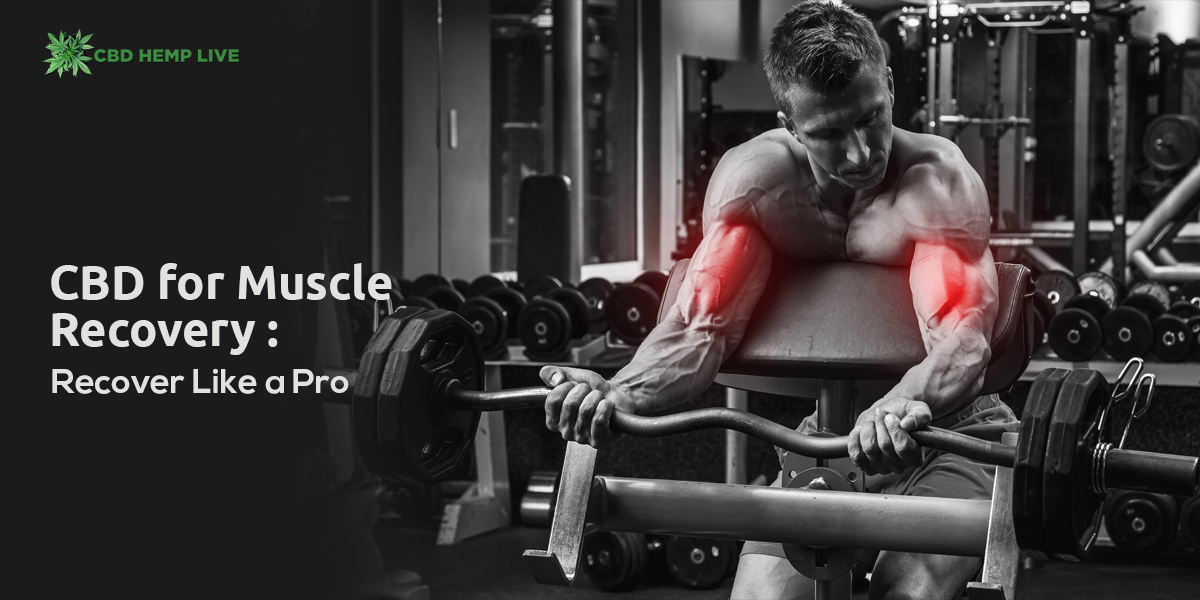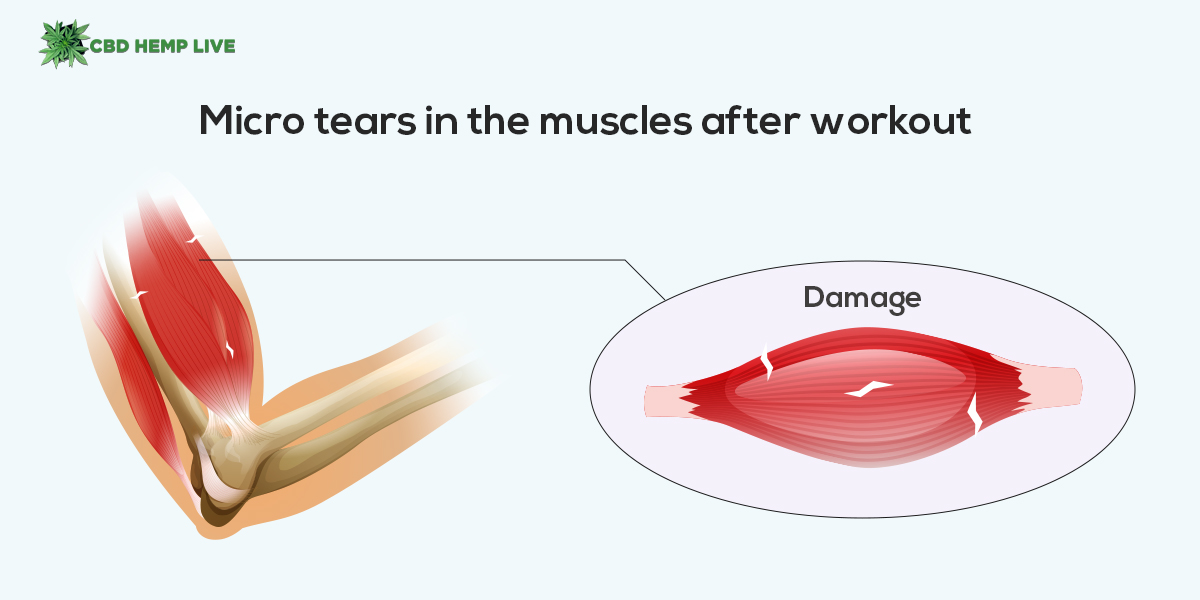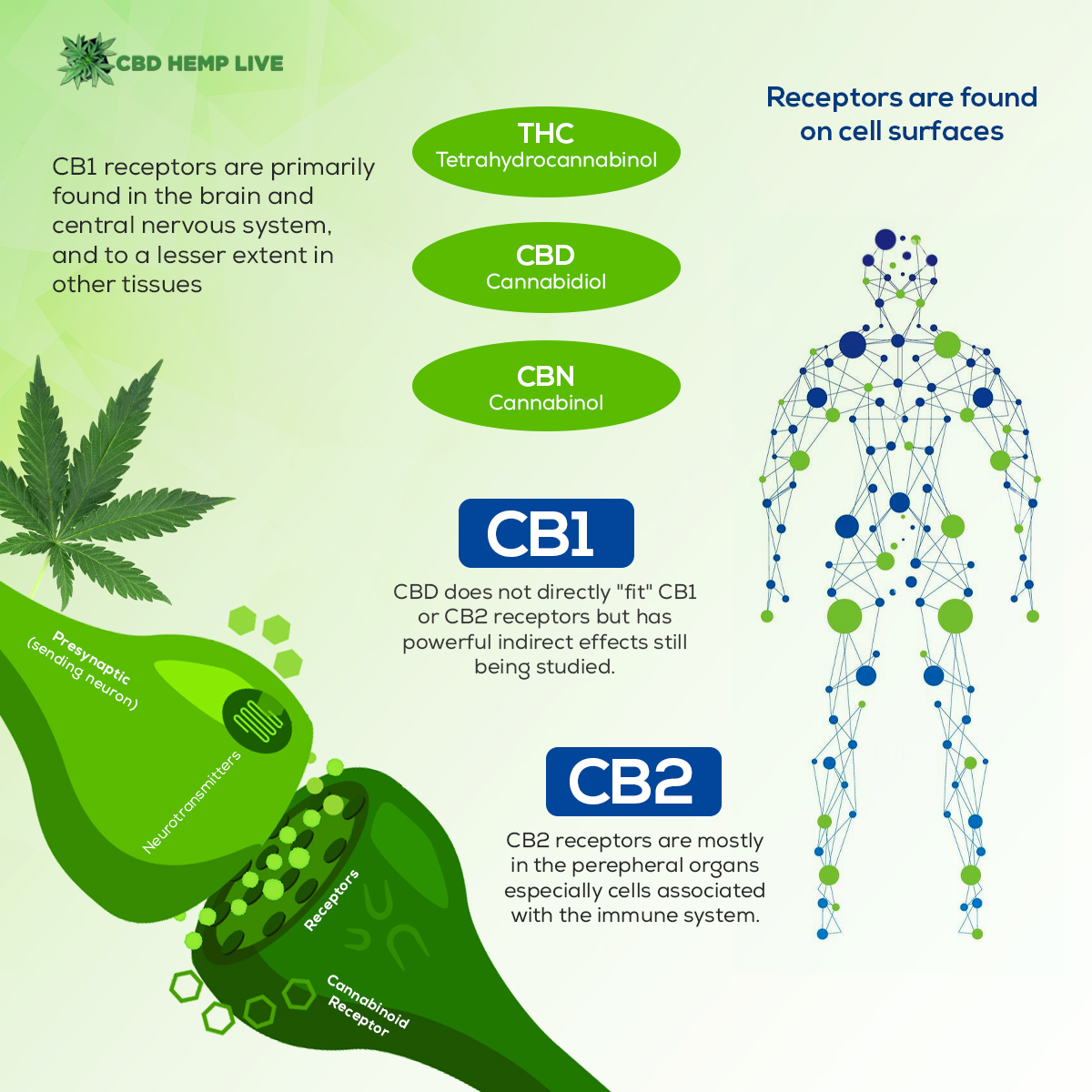
- Cannabis
-
by @admin
If you are a fan of strength training, powerlifting, bodybuilding, or CrossFit athletes, you are likely to have seen them post images of vials of CBD oil, droppers of CBD creams, or discuss their use of CBD on social media. Athletes are turning to CBD products, along with protein and carbs, as part of their recovery plan after training.
Many athletes have reported that CBD oil has helped them manage post-exercise muscle soreness and improve their overall physical recovery, especially during the peak of their training.
Recent research has suggested that CBD oil may benefit pain associated with muscle recovery post-exercise. However, before diving into the research and evidence, let us first understand what happens to the body after exercise.
Why Do Sore Muscles Happen After A Workout?
Delayed onset muscle soreness (DOMS) is a common symptom of muscle soreness, a sore, aching, painful feeling in the muscles caused by overworking your muscles. DOMS is considered to be a type 1 muscle strain injury with a pain-free period of 12-24 hours, and muscle soreness peaks between 24-72 hours.

When working out, micro tears in the muscles occur (more so in eccentric muscle contraction), which can indirectly help muscle development. Our bodies, though, can remarkably adapt to the demands and stress placed upon them. Muscle growth and development happen naturally, but microscopic tears in your muscle fibers can occur when you overwork your muscles. This causes fluid to rush to the affected area to flush out damaged cells and create new, stronger muscle cells—which can be uncomfortable.
Muscle soreness isn’t a fun thing to experience after a workout. It’s actually a sign of your muscles adapting and building strength. With time and regular exercise, your muscles become more resilient to fatigue, and DOMS will decrease.
The problem comes when you can’t afford to ‘wait out’ pain, delay your next workout, or delay a game for professional athletes. It can be hard to push through the pain; for many people, it can become a significant obstacle to getting the most out of their physical capabilities.
As the world anti-doping agency no longer prohibits CBD, many athletes are using CBD for muscle recovery.
The Science Behind CBD and Muscle Recovery
How CBD Interacts with the Endocannabinoid System
To understand how CBD affects muscle recovery, you must first understand the ECS (Endocannabinoid System). The Endocannabinoid System (ECS) is a complex cellular signaling system that exists in the body and is critical in regulating pain perception, the immune system, and inflammation.
It comprises three main components:
1. Cannabinoid receptors: They are like tiny windows that open up on cells all over the body. They can pick up signals about what’s happening in the brain, nervous system, heart, etc. so that the cells can do what they need to do. There are two kinds of cannabinoid receptors: CB1 and CB2. You can find them in your skin, your liver, your kidneys, your heart, and all the other organs.
2. Endocannabinoids: Endocannabinoids are molecules the body produces, also called endogenous cannabinoids. They are structurally related to cannabinoids but are produced by the body independently. To date, two primary endocannabinoids have been identified by experts: anandamide (AEA) and 2-arachidonolglyerol (2-AG).
3. Enzymes: Once the endocannabinoid has been metabolized, enzymes are responsible for its degradation. Two primary enzymes are involved in this process: Fatty Acid Amide Hydrolase, accountable for the degradation of AEA, and Monoacyl Glycerol Acid Lipase, which breaks down (2-AG).
Is CBD Safe For Athletes?
Although CBD is generally regarded as safe, it’s essential to consider a few things when using it:
The CBD industry is still in its early stages, with limited research on this substance. This is because it was only legalized after the Farm Bill in 2018. The Food and Drug Administration (FDA) acknowledges that CBD has not been shown to cause significant harm. However, it does recognize that there may be mild side effects such as digestive issues, sleepiness, dryness, and changes in appetite.
CBD is legal in the United States and is no longer on the WADA’s list of prohibited substances. Athletes who have been drug tested and are subject to testing should be cautious.
Some CBD products available on the market have THC and CBD components. Hemp-derived CBD with less than 0.3% THC is legal in every state. However, hemp-derived CBD with higher THC content is still illegal in some regions.
However, WADA (World Anti-Doping Agency) still prohibits THC.
Note: The FDA has not reviewed these statements, and CBD products do not diagnose, treat, treat, or prevent any diseases.
CBD for Muscle Recovery
As we know, cannabidiol (CBD) is found in the cannabis plant and has a distinct interaction with the endocannabinoid system (ECS). CBD is different from THC, another widely recognized cannabinoid, in that it produces no intoxicating effects and many health benefits. Instead, CBD has indirect interactions with both CB2 and CB1 receptors and has a variety of impact on the ECS:
1. Anti-Inflammatory Properties: CBD is anti-inflammatory, mainly because it helps reduce the production of cytokines that cause inflammation. It’s essential to manage inflammation if you want your muscles to recover properly.
2. Pain Modulation: Clinical trials have demonstrated that Cannabidiol (CBD) can potentially alter pain perception. It has been found to interact with nerve receptors in the body, potentially providing relief from post-exercise pain and discomfort.
3. Sleep Improvement: Research has demonstrated that cannabidiol (CBD) has the potential to enhance sleep quality. By reducing stress and fostering relaxation, CBD could lead to a more restorative sleep pattern, which is essential for muscular recovery.
4. Neuroprotection: Studies have indicated that Cannabidiol (CBD) can potentially have a neuroprotective effect, which could be beneficial in protecting nerve cells from harm and aiding in the coordination of muscles.
5. Oxidative Stress Reduction: CBD has been found to have antioxidant properties that help reduce oxidative stress, which is usually seen in people who do a lot of exercise. This could help people recover faster by reducing the amount of damage to their cells.
How to Use CBD for Muscle Recovery
Cannabidiol (CBD) has become increasingly popular as a natural and holistic way to manage post-exercise muscle soreness and promote overall wellness. However, understanding how to use CBD for muscle recovery is key.
Here are some practical tips and strategies for incorporating CBD into your recovery routine.
1. Consult with a Healthcare Professional
It is recommended to consult a healthcare professional before implementing CBD into a muscle recovery program, particularly if one has pre-existing medical conditions or is currently taking medications.
The healthcare professional can provide individualized advice and guarantee that CBD is safe and appropriate for the individual.
2. Choose the Right CBD Product
The first step is selecting the right CBD product. CBD comes in various forms, including:
● CBD Oil or Tinctures: These are administered sublingually (under the tongue) for fast absorption.
● CBD Capsules: Convenient and discreet, capsules provide a precise dosage.
● CBD Topicals: Balms, creams, and lotions can be applied directly to sore muscles for localized relief.
● CBD Edibles: CBD Gummies, chocolates, and other edibles offer a tasty way to consume CBD, but the effects may take longer to kick in.
● CBD Isolate or Full-Spectrum: Choose between isolated CBD (pure CBD) or full-spectrum CBD (contains additional cannabinoids and terpenes, which may enhance the “entourage effect”).
3. Determine the Appropriate Dosage
It’s totally up to you to decide how much CBD to take for muscle recovery. Start with a small amount and work your way up until you get the results you want. Things like your weight, how fast your metabolism is, and how bad your muscle pain is can all affect how much CBD you should take. Talk to a doctor to help you figure out the best dose for you.
4. Best Time To Take CBD For Recovery
When to take CBD for muscle recovery depends on your goals:
● Pre-Workout: Some take CBD before exercise to potentially reduce anxiety and promote relaxation, allowing for a more focused and effective workout.
● Post-Workout: CBD is often used post-exercise to alleviate soreness and support the body’s natural recovery processes.
● Regular Use: Incorporating CBD into your daily routine may help maintain overall wellness and preemptively address muscle discomfort.
5. Opt for High-Quality CBD
When selecting CBD products, it is important to ensure they are from reliable manufacturers. Additionally, it is beneficial to look for products that offer third-party laboratory testing results to confirm the potency and purity of the product. It is essential to ensure that the product is of the highest quality to ensure its safety and effectiveness.
6. Experiment and Observe
Keep track of how much CBD you’re taking and how it’s helping your muscles recover. Write down how much you’re taking, when you’re taking it, and what you’re feeling before and after. Make changes to your routine based on what you find out.
7. Combine with Other Recovery Techniques
CBD can complement other recovery practices:
● Hydration: Proper hydration is essential for recovery. Drink plenty of water to help flush out toxins and support muscle healing.
● Stretching and Foam Rolling: Incorporate stretching and foam rolling into your routine to improve flexibility and reduce muscle tension.
● Nutrition: Consume a balanced diet rich in protein, antioxidants, and anti-inflammatory foods to support recovery.
● Rest: Ensure you get adequate sleep, as it’s during deep sleep that the body undergoes significant repair and muscle growth.
Conclusion
CBD for muscle recovery is a natural and effective way to improve your fitness by talking to your doctor, choosing the correct CBD product, figuring out the right dose, and consistently incorporating it into your daily routine.
Everyone responds differently to CBD, so you must be patient and keep track of your progress as you adjust your CBD routine to fit your needs.
________________________________________
Frequently Asked Question
Does CBD oil help with muscle recovery?
Yes, CBD oil has shown promise in aiding muscle recovery by reducing inflammation and potentially alleviating soreness.
Does CBD oil really work for muscle pain?
Yes, CBD oil may relieve muscle pain by modulating pain perception and reducing inflammation.
Does CBD oil help with muscle inflammation?
Yes, CBD oil is known for its anti-inflammatory properties, which can help reduce muscle inflammation.
Will CBD oil help me build muscle?
CBD oil is not a muscle-building supplement but may support muscle recovery, helping you train more consistently.
Is CBD good for athletes?
CBD can benefit athletes due to its potential in reducing inflammation, pain management, and aiding recovery.
Does rubbing CBD oil work on muscle spasms?
Yes, applying CBD oil topically may help with muscle spasms by targeting specific areas of discomfort.
Is CBD helpful for professional athletes?
Some professional athletes use CBD for recovery, but it’s essential to check with governing bodies for any restrictions or regulations.
Which CBD cream works best to relieve muscle pain?
The effectiveness of CBD creams can vary. Choosing a reputable brand with third-party testing is recommended to ensure quality.

